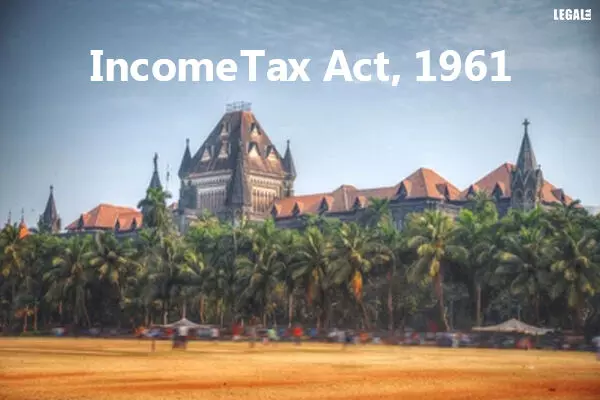- Home
- News
- Articles+
- Aerospace
- Artificial Intelligence
- Agriculture
- Alternate Dispute Resolution
- Arbitration & Mediation
- Banking and Finance
- Bankruptcy
- Book Review
- Bribery & Corruption
- Commercial Litigation
- Competition Law
- Conference Reports
- Consumer Products
- Contract
- Corporate Governance
- Corporate Law
- Covid-19
- Cryptocurrency
- Cybersecurity
- Data Protection
- Defence
- Digital Economy
- E-commerce
- Employment Law
- Energy and Natural Resources
- Entertainment and Sports Law
- Environmental Law
- Environmental, Social, and Governance
- Foreign Direct Investment
- Food and Beverage
- Gaming
- Health Care
- IBC Diaries
- In Focus
- Inclusion & Diversity
- Insurance Law
- Intellectual Property
- International Law
- IP & Tech Era
- Know the Law
- Labour Laws
- Law & Policy and Regulation
- Litigation
- Litigation Funding
- Manufacturing
- Mergers & Acquisitions
- NFTs
- Privacy
- Private Equity
- Project Finance
- Real Estate
- Risk and Compliance
- Student Corner
- Take On Board
- Tax
- Technology Media and Telecom
- Tributes
- Viewpoint
- Zoom In
- Law Firms
- In-House
- Rankings
- E-Magazine
- Legal Era TV
- Events
- Middle East
- Africa
- News
- Articles
- Aerospace
- Artificial Intelligence
- Agriculture
- Alternate Dispute Resolution
- Arbitration & Mediation
- Banking and Finance
- Bankruptcy
- Book Review
- Bribery & Corruption
- Commercial Litigation
- Competition Law
- Conference Reports
- Consumer Products
- Contract
- Corporate Governance
- Corporate Law
- Covid-19
- Cryptocurrency
- Cybersecurity
- Data Protection
- Defence
- Digital Economy
- E-commerce
- Employment Law
- Energy and Natural Resources
- Entertainment and Sports Law
- Environmental Law
- Environmental, Social, and Governance
- Foreign Direct Investment
- Food and Beverage
- Gaming
- Health Care
- IBC Diaries
- In Focus
- Inclusion & Diversity
- Insurance Law
- Intellectual Property
- International Law
- IP & Tech Era
- Know the Law
- Labour Laws
- Law & Policy and Regulation
- Litigation
- Litigation Funding
- Manufacturing
- Mergers & Acquisitions
- NFTs
- Privacy
- Private Equity
- Project Finance
- Real Estate
- Risk and Compliance
- Student Corner
- Take On Board
- Tax
- Technology Media and Telecom
- Tributes
- Viewpoint
- Zoom In
- Law Firms
- In-House
- Rankings
- E-Magazine
- Legal Era TV
- Events
- Middle East
- Africa
Bombay High Court rejects recovery procedure under the IT Act

Bombay High Court rejects recovery procedure under the IT Act
It observed that the procedure adopted by the department was violative of the principles of natural justice
The Bombay High Court has quashed the recovery procedure under the Income Tax Act, 1961 against the director of a company. It held that no satisfaction was recorded and that the tax could not be recovered from the company.
The petitioner, Rajendra R. Singh, is the Chairman and Managing Director of Crest Paper Mills Limited.
The IT department passed an order under the IT Act, holding that the petitioner was liable to pay the demand of Rs.3,98,19,430 along with interest, which was otherwise due and payable by his company.
Relying on the decision of the Pravinbhai M. Kheni vs. Assistant case, it observed that even the director of public companies could be brought within the purview, especially where the affairs of the company were not conducted as a public limited company in its true sense.
Aggrieved by the decision, the petitioner filed a writ petition for the issuance of a writ of certiorari for quashing the order.
The division bench observed that the procedure adopted by the department was violative of the principles of natural justice, as the petitioner was not given the opportunity of being heard. He was supposed to have responded as to why the principle of 'lifting the corporate veil' was not applied in his company's case. It further said the department also failed to record the satisfaction that the tax could not be recovered from the company before initiating the proceedings.
The Coram of Justice Dhiraj Singh Thakur and Justice Abhay Ahuja held that the "recovery procedure against the director under the IT Act was not to be resorted to casually and only because it was convenient to do so for affecting recovery of the tax dues."
While advocate Madhur Agrawal appeared on behalf of the petitioner, the respondents were represented by advocates Suresh Kumar and Akhileshwar Sharma.



